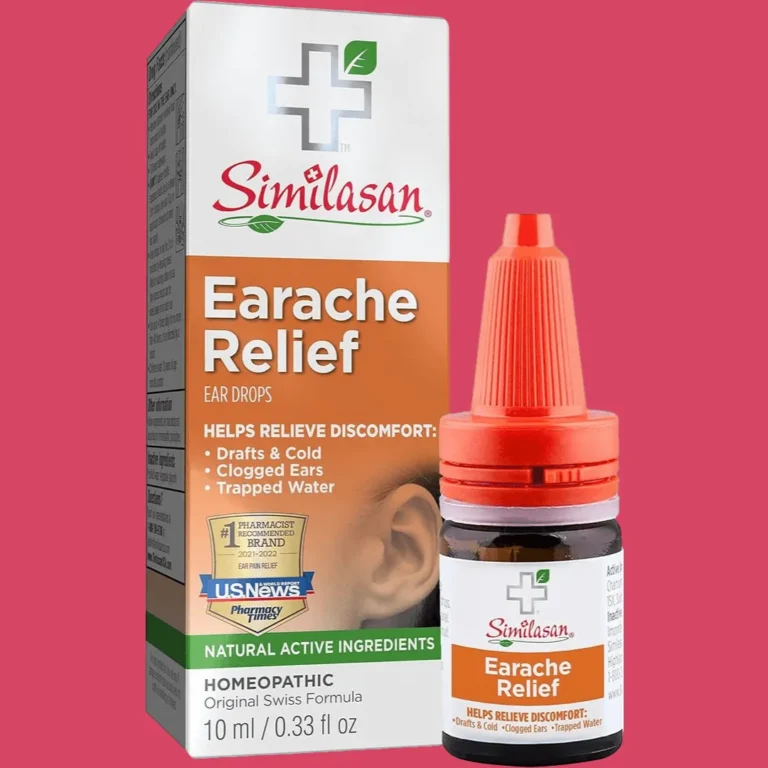Natural Herbal Remedies for Anxiety
In a world where the pace of life seems to quicken with each passing day, finding solace and calm can feel like an elusive dream.
Anxiety has become a common companion for many, often lurking in the shadows of our busiest moments.
While traditional medications offer relief, there is a growing curiosity about more holistic approaches.
Enter the realm of natural herbal remedies—time-honored solutions that have been used for centuries across cultures to soothe frayed nerves and restore balance.
Imagine sipping on a warm cup of chamomile tea as you unwind from a hectic day or breathing in the calming scent of lavender oil diffused through your living space.
These simple yet powerful practices are just the beginning.
In this article, we will explore various natural herbal remedies for anxiety that not only harness nature’s bountiful gifts but also provide a gentle path to tranquility without the side effects associated with pharmaceuticals.
Dive in to discover how these ancient herbs can seamlessly integrate into your modern lifestyle, offering peace and serenity when you need it most.
Anxiety is a common mental health condition that affects millions of people worldwide.
While there are various pharmaceutical treatments available, many individuals are seeking natural and holistic remedies to alleviate their symptoms.
In recent years, the use of natural herbal remedies for anxiety has gained popularity due to their effectiveness and minimal side effects.
These remedies, derived from plants and herbs, have been used for centuries in traditional medicine practices and are now being recognized for their potential to promote relaxation and reduce feelings of stress and anxiety.
In this article, we will explore some of the most popular natural herbal remedies for anxiety and how they can be incorporated into your daily routine to help manage symptoms.
From calming teas and essential oils to herbal supplements and tinctures, there are a wide range of options available for those seeking a more natural approach to anxiety relief.
We will also discuss the science behind these remedies, including the active compounds that contribute to their calming effects and the research supporting their use in anxiety management.
Whether you are looking to complement your current treatment plan or explore alternative options, learning about natural herbal remedies for anxiety may provide you with new tools to better manage your mental health.
Table of Contents Natural Herbal Remedies for Anxiety
Herbal teas calm anxious minds
To effectively manage feelings of anxiety, one may consider incorporating herbal teas into their daily routine.
The calming properties of certain herbal teas have been shown to have a positive impact on mental well-being, promoting a sense of relaxation and tranquility.
Infusions such as chamomile, known for its soothing effects, or lavender, recognized for its stress-relieving properties, can offer a natural and gentle way to alleviate anxiety.
By sipping on a warm cup of herbal tea, individuals may find themselves experiencing a heightened sense of calmness, allowing for a moment of respite from the pressures of daily life.
Lavender oil reduces stress levels
Derived from the lavender plant, Lavandula angustifolia, lavender oil is renowned for its ability to reduce stress levels and promote relaxation.
Research has shown that the scent of lavender has a calming effect on the nervous system, making it an ideal natural remedy for individuals experiencing heightened levels of stress and anxiety.
By inhaling the pleasant aroma of lavender oil or incorporating it into aromatherapy practices, individuals may benefit from its soothing properties, leading to a sense of tranquility and emotional well-being.
Additionally, lavender oil can be used topically in diluted form to provide a calming massage, further aiding in stress reduction and promoting overall relaxation.
Chamomile aids in relaxation
Chamomile, known for its mild sedative properties, has been used for centuries to aid in relaxation and promote a sense of calm.
This natural remedy contains compounds like apigenin that interact with receptors in the brain, helping to reduce anxiety and improve sleep quality.
Chamomile tea is a popular way to incorporate this herb into one’s routine, as sipping on a warm cup before bedtime can help soothe nerves and prepare the body for rest.
Additionally, chamomile essential oil can be diluted and used in aromatherapy practices to create a peaceful environment conducive to relaxation.
By harnessing the benefits of chamomile, individuals experiencing stress and anxiety may find relief and support in managing their emotional well-being.
Valerian root for anxiety relief
Valerian root, another herbal remedy known for its calming effects, has been utilized for centuries as a natural treatment for anxiety and insomnia.
The root of the Valeriana officinalis plant contains compounds that interact with gamma-aminobutyric acid (GABA) receptors in the brain, promoting relaxation and reducing feelings of stress and tension.
Valerian root is commonly available in supplement form, such as capsules or tinctures, making it convenient for individuals seeking anxiety relief.
By incorporating Valerian root into one’s wellness routine, individuals may benefit from its soothing properties and find support in managing symptoms of anxiety in a natural and holistic manner.
Passionflower promotes natural tranquility
Also known as Passiflora incarnata, passionflower is an herbal remedy that is gaining recognition for its ability to promote natural tranquility and relaxation.
This flowering plant contains compounds that have been found to interact with neurotransmitters in the brain, such as gamma-aminobutyric acid (GABA), which plays a key role in regulating stress and anxiety levels.
Research suggests that passionflower may help reduce feelings of restlessness, nervousness, and agitation, making it a potential option for individuals seeking relief from anxiety symptoms.
Its calming properties have been utilized in traditional medicine practices for centuries, offering a natural and gentle approach to supporting emotional well-being.
Incorporating passionflower into a holistic wellness routine may provide individuals with a soothing remedy to help manage feelings of anxiety and enhance overall tranquility.
In conclusion, exploring natural herbal remedies for anxiety can offer individuals a holistic approach to managing their mental well-being.
While pharmaceutical interventions have their place in mental health treatment, the potential benefits of herbal remedies, such as passionflower, valerian root, or lavender, in reducing anxiety symptoms deserve recognition.
It is essential to approach such remedies with caution, ensuring they do not interfere with existing medications or conditions.
Consulting with a healthcare professional or an herbalist before incorporating these remedies into one’s routine is advisable.
By combining traditional herbal wisdom with modern medical knowledge, individuals can work towards achieving a balanced and comprehensive approach to addressing their anxiety.
FAQ
What are some natural herbal remedies that have been shown to be effective in reducing anxiety symptoms?
Some natural herbal remedies that have shown effectiveness in reducing anxiety symptoms include lavender, chamomile, passionflower, valerian root, and lemon balm.
These herbs have been used for centuries to promote relaxation and calmness, with research suggesting their potential benefits in reducing anxiety.
It’s important to consult with a healthcare provider before trying any herbal remedies to ensure they are safe and appropriate for individual circumstances.
Are there any potential side effects or risks associated with using natural herbal remedies for anxiety?
Yes, some potential side effects of using natural herbal remedies for anxiety include allergic reactions, interactions with medications, and adverse effects on certain medical conditions.
It is important to consult with a healthcare professional before incorporating herbal remedies into your treatment plan to ensure safety and effectiveness.
How do natural herbal remedies for anxiety compare to traditional pharmaceutical treatments in terms of effectiveness?
Natural herbal remedies for anxiety and traditional pharmaceutical treatments can vary in effectiveness from person to person.
While pharmaceutical treatments may offer faster relief for severe anxiety symptoms, they can also come with potential side effects and risks of dependency.
On the other hand, herbal remedies are often preferred for their milder effects and lower risk of side effects, but may not provide the same level of immediate relief for severe cases.
It ultimately depends on individual preferences, the severity of anxiety, and consultation with a healthcare professional to determine the most suitable treatment approach.
Are there any specific herbal remedies that are particularly effective for different types of anxiety disorders, such as generalized anxiety disorder or social anxiety disorder?
There are several herbal remedies that have shown promise in managing anxiety disorders, including passionflower for generalized anxiety disorder and kava for social anxiety disorder.
However, it’s important to consult with a healthcare professional before trying these remedies, as they may interact with other medications or have potential side effects.
Cognitive-behavioral therapy and medication are also effective treatment options for anxiety disorders.
What is the recommended dosage and frequency for using natural herbal remedies for anxiety, and how long does it typically take to see results?
The recommended dosage and frequency for natural herbal remedies for anxiety can vary depending on the specific herb and individual tolerance.
It is advisable to start with the lowest effective dose and gradually increase if needed.
Results in terms of anxiety relief can typically be seen within a few weeks of consistent use, but it may take longer for some individuals.
It is important to consult with a healthcare provider or herbalist for personalized recommendations and guidance on dosage, frequency, and duration of use.







